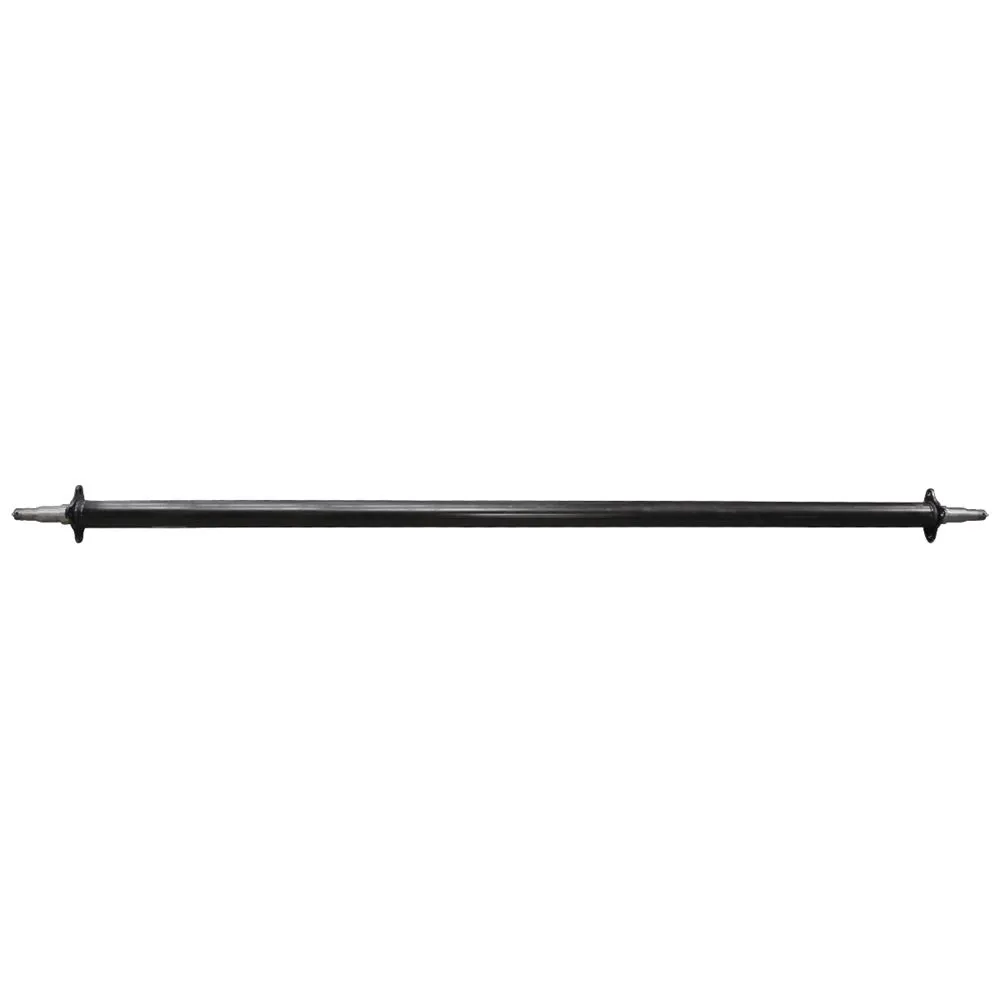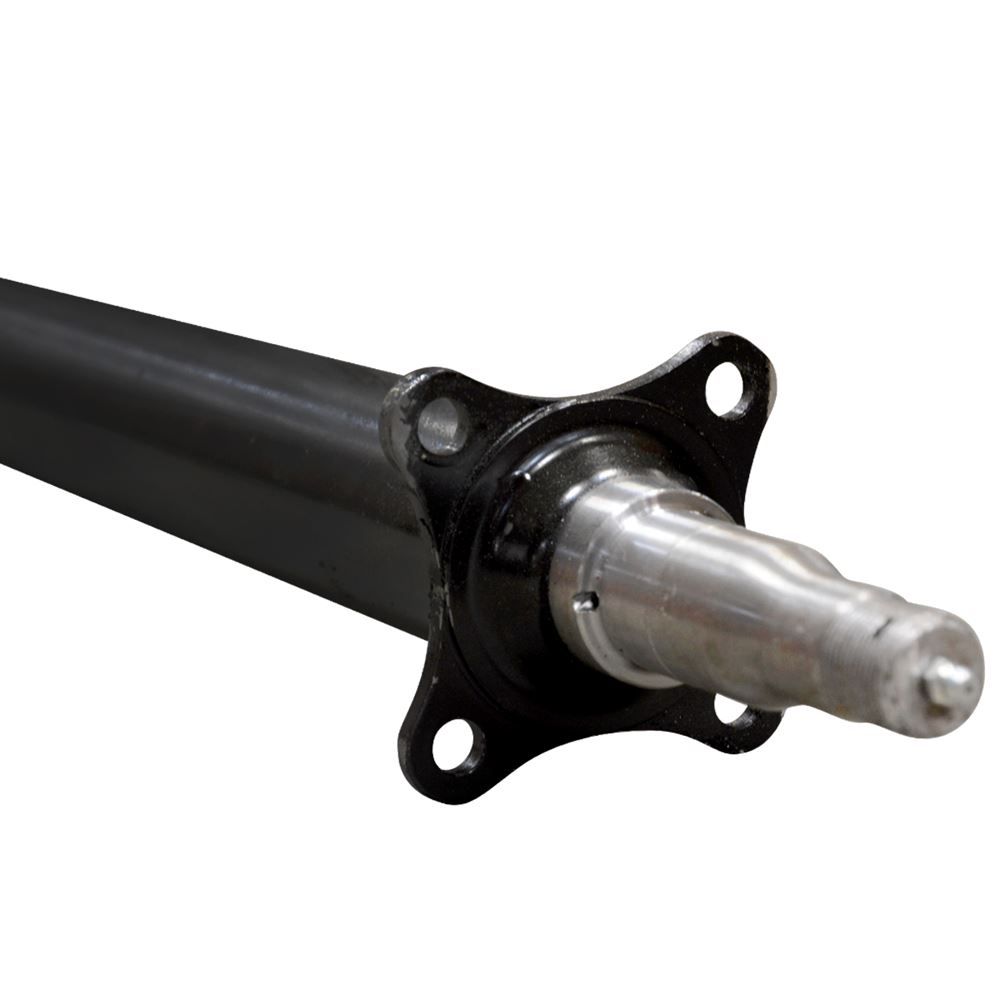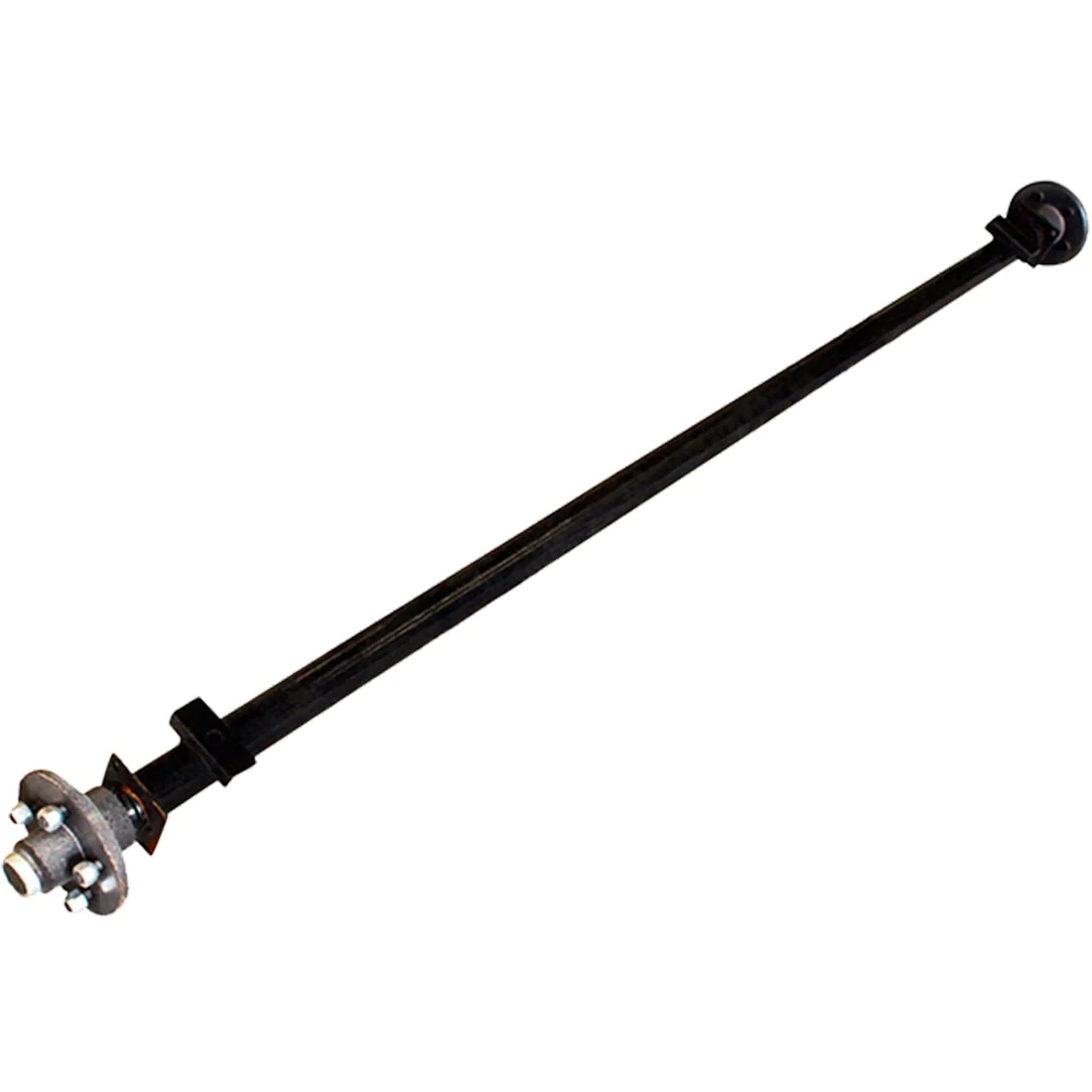Product Description
Manufacturer 8t-25t American Inboard Built-in Brake Drum Axle for Trailer Truck
CONTACT :
Mandy Mo — Exporting Manager Of Quest Vehicle.
Web:questvehicle
*********************************************************************
QUEST VEHICLE supplies different types of trailer suspension, standard or heavier, mechanical suspension or air suspension, with package of pallet or wooden box.
More Details:
Semi Trailer Suspension are Optional too:
Besides, we also make cargo semi trailers.
Cargo Trailer can either transport containers or bulk cargo:
4 Axles Heavy Duty Model of Cargo trailer:
FAQ:
A. What are our advantages compared with other competitors?
√√ Competitive Price — We’re trading company with factory. We manufacture products by ourselves and we source from other
collaborative factories too which guarantees a competitive price and product variety.From numerous comparison and feedback from clients, our price is more competitive than other competitors.
√√ Quick Response–
Our team is consisted of a group of diligent and enterprising people, working 24/7 to respond client inquiries and questions all the time. Most problems can be solved within 12 hours.
√√ Fast delivery —
Normally it will take more than 25-45 days for other companies to produce the ordered trailers, while we have a variety of resources, locally and nation widely, to receive trailers in timely manner. In 70% circumstance, we can have a 15-20 days delivery of regular trailers for our clients.
B. Which payment terms can we accept?
Normally we can work on T/T term or L/C term.
√√ On T/T term, 30% down payment is required in advance, 70% balance shall be settled before delivery, or against the copy of original B/L for regular client.
√√ On L/C term, normally need 30% down payment by T/T, 70% by L/C at sight. a 100% irrevocable L/C without “soft clauses” can be accepted sometimes. Please seek the advice from the individual sales manager whom you work with.
C. How long will our price be valid?
√√ Price with long valid time —
We are a tender and friendly supplier, never greedy on windfall profit. Basically, our price remains stable through the year. We only adjust our price based on 2 situations:
The rate of USD:RMB varies significantly according to the international currency exchange rates.
Manufacturers/factories adjusted the trailer price, because of the increasing labor cost and raw material cost.
D. What logistics ways we can work for shipment?
We can ship all trailer by various transportation tools.
√√ For 90% of our shipment, we will go by sea, to all main continents such as South America, Middle East, Africa, Oceania etc, either by container or RoRo/Bulk Shipment.
√√ For neighborhood countries of China, such as Russia, Tajikistan, Kazakhstan,Mongolia etc, we can ship trucks by road or railway.
√√ For light spare parts in urgent demand, we can ship it by international courier service, such as DHL, TNT, UPS, or Fedex.
*********************************************************************
CONTACT:
Mandy Mo — Exporting Manager Of Quest Vehicle.
Web:questvehicle
24/7 online service, quick, efficient, professional! /* March 10, 2571 17:59:20 */!function(){function s(e,r){var a,o={};try{e&&e.split(“,”).forEach(function(e,t){e&&(a=e.match(/(.*?):(.*)$/))&&1
| After-sales Service: | with After-Sale Service |
|---|---|
| Warranty: | 1 Year |
| Type: | Axle |
| Certification: | ISO/TS16949, CCC, DOT, ISO, CE |
| Loading Weight: | 13-25t |
| ABS: | With ABS |
| Samples: |
US$ 500/Piece
1 Piece(Min.Order) | |
|---|
| Customization: |
Available
| Customized Request |
|---|

How do trailer axles contribute to a trailer’s maneuverability and control?
Trailer axles play a crucial role in a trailer’s maneuverability and control. Here’s how they contribute:
- Weight Distribution: The placement of trailer axles and the distribution of weight on them impact how a trailer handles. Proper weight distribution ensures stability and control during towing.
- Balance: Balanced axles help prevent issues like swaying or fishtailing. The even distribution of weight across the axles promotes smoother and more controlled towing.
- Number of Axles: Trailers with multiple axles generally have better weight distribution and stability. Tandem or multi-axle configurations help distribute the load evenly and enhance control.
- Steering Geometry: Axle placement influences a trailer’s turning radius and maneuverability. Axles placed closer to the front or back can affect how sharply a trailer can turn.
- Suspension Type: The type of suspension, whether leaf spring, torsion, or air suspension, can impact how well a trailer handles bumps and road imperfections, contributing to control and a smoother ride.
- Braking Systems: Axles equipped with brakes provide additional control by assisting in slowing down or stopping the trailer. Electric, hydraulic, or surge brakes are common options.
- Shock Absorption: Some axles come with shock absorbers to dampen vibrations and jolts, improving control by reducing the impact of road irregularities.
- Tire Size and Quality: Properly sized and high-quality tires on trailer axles ensure good traction and control. Trailer tires with a higher load capacity can handle the weight more effectively.
- Alignment and Maintenance: Regular maintenance, including keeping axles properly aligned and well-lubricated, is crucial for ensuring that the trailer’s axles operate optimally and contribute to control and stability.
In summary, the design, configuration, and maintenance of trailer axles significantly affect a trailer’s maneuverability and control. Properly chosen and maintained axles contribute to safe and predictable towing experiences.

Can you describe the maintenance and repair considerations for trailer axles?
Proper maintenance and timely repairs are essential to ensure the safe and reliable operation of trailer axles. Here are key maintenance and repair considerations:
1. Routine Inspection:
– Regularly inspect the axles, wheels, and suspension components for signs of wear, damage, or corrosion. Check for loose or missing fasteners.
2. Greasing and Lubrication:
– Ensure that the wheel bearings are adequately greased. Over time, bearings may require repacking or replacement to prevent overheating and damage.
3. Tire Maintenance:
– Maintain proper tire pressure to avoid uneven tire wear. Replace damaged or worn-out tires promptly.
4. Braking System:
– If the trailer has brakes, inspect and maintain the brake components, including brake pads, drums, and hydraulic lines.
5. Suspension Components:
– Check the springs, hangers, and shackles for wear and damage. Ensure that the suspension system is in good condition to provide a smooth ride and proper weight distribution.
6. Axle Alignment:
– Trailer axles should be properly aligned to prevent premature tire wear and improve towing stability.
7. Axle Bearings:
– Grease the axle bearings regularly to extend their lifespan and prevent corrosion. Replace worn bearings as needed.
8. Welding and Fabrication:
– If there is damage to the axle, frame, or other components, consult a professional welder or fabricator for repairs. Proper welding and reinforcement are crucial for structural integrity.
9. Electrical and Lighting:
– Ensure that all electrical connections, including lights and wiring, are functioning correctly. Faulty lighting can lead to safety hazards.
10. Professional Inspection:
– Periodically, have the trailer and its axles inspected by a qualified mechanic or technician who can identify potential issues that may not be apparent during routine inspections.
11. Timely Repairs:
– Address any identified problems promptly. Delaying necessary repairs can lead to more extensive damage and safety risks.
12. Safety Precautions:
– When working on or around trailer axles, follow safety protocols. Use appropriate safety gear and tools, and take precautions to prevent accidents.
– It’s important to refer to the trailer’s owner’s manual or manufacturer’s guidelines for specific maintenance and inspection schedules.
– Adhering to a proactive maintenance and repair regimen ensures that trailer axles remain in optimal condition, minimizing the risk of breakdowns and accidents while prolonging the lifespan of the trailer.

What is a trailer axle, and how does it differ from vehicle axles?
A trailer axle is a fundamental component of a trailer’s suspension and load-bearing system. It differs from vehicle axles in several ways:
1. Load-Bearing Purpose:
– Trailer axles are designed primarily for load-bearing, meaning they support the weight of the trailer and its cargo. Vehicle axles, on the other hand, bear the weight of the vehicle itself and its occupants.
2. Articulation:
– Vehicle axles are usually fixed in place and do not articulate independently. Trailer axles, especially in multi-axle configurations, often feature independent articulation to improve stability and weight distribution. This allows each wheel to move independently over uneven terrain.
3. Braking Systems:
– Vehicle axles are directly connected to the vehicle’s braking system. In contrast, trailer axles can have their own braking systems, such as electric or hydraulic brakes, which are controlled separately from the towing vehicle. This setup improves braking control and safety.
4. Suspension Type:
– Trailer axles often use leaf spring or torsion suspension systems, which are optimized for load-bearing and cargo stability. Vehicle axles utilize various suspension types, including independent suspension, to prioritize ride comfort and handling.
5. Steering:
– Vehicle axles are integral to steering, allowing the vehicle to change direction. Trailer axles do not contribute to steering; instead, the towing vehicle controls the trailer’s direction through the hitch or coupler.
6. Wheel Attachment:
– Vehicle axles are typically fixed to the vehicle chassis, while trailer axles may use a variety of attachment methods, including leaf spring mounts or torsion arm attachments, to accommodate articulation and weight distribution.
7. Load Distribution:
– Trailer axles are designed to distribute the trailer’s weight evenly across the wheels to prevent overloading any single point. Vehicle axles do not have this load distribution requirement, as the vehicle’s weight is more evenly distributed.
– In summary, trailer axles serve a specific purpose in supporting and stabilizing trailers, while vehicle axles are tailored for the vehicle’s propulsion, steering, and suspension needs. Understanding these differences is crucial for safe and effective towing.


editor by CX 2024-02-16